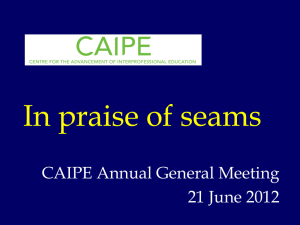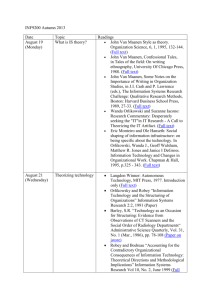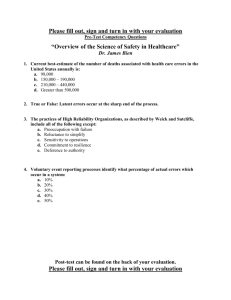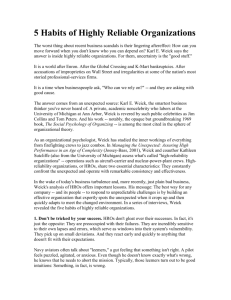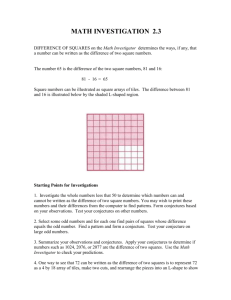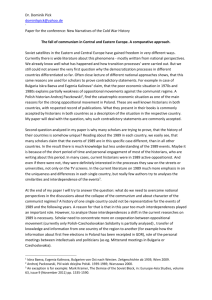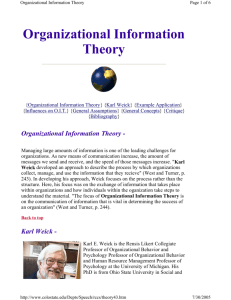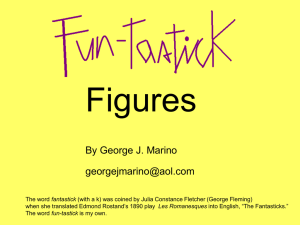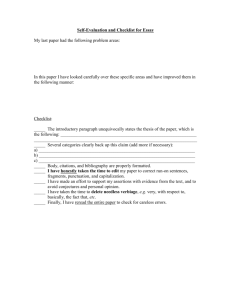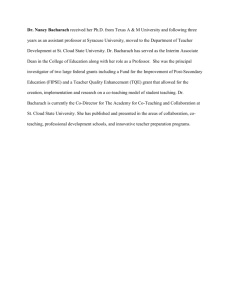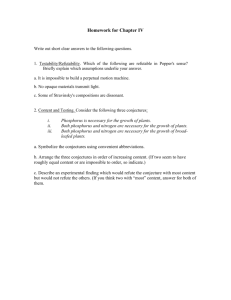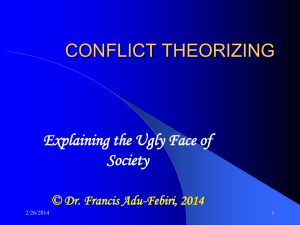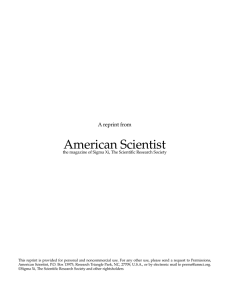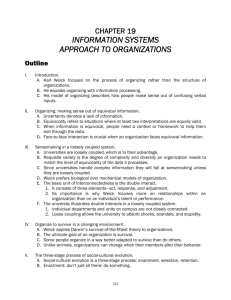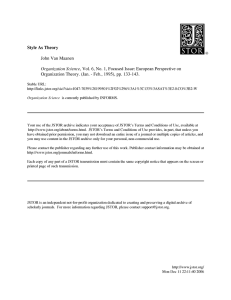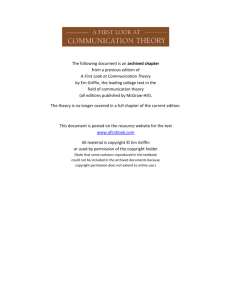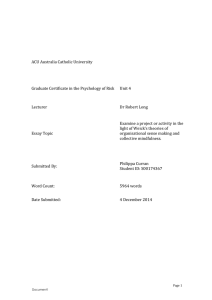Theory Construction as Disciplined Imagination
advertisement
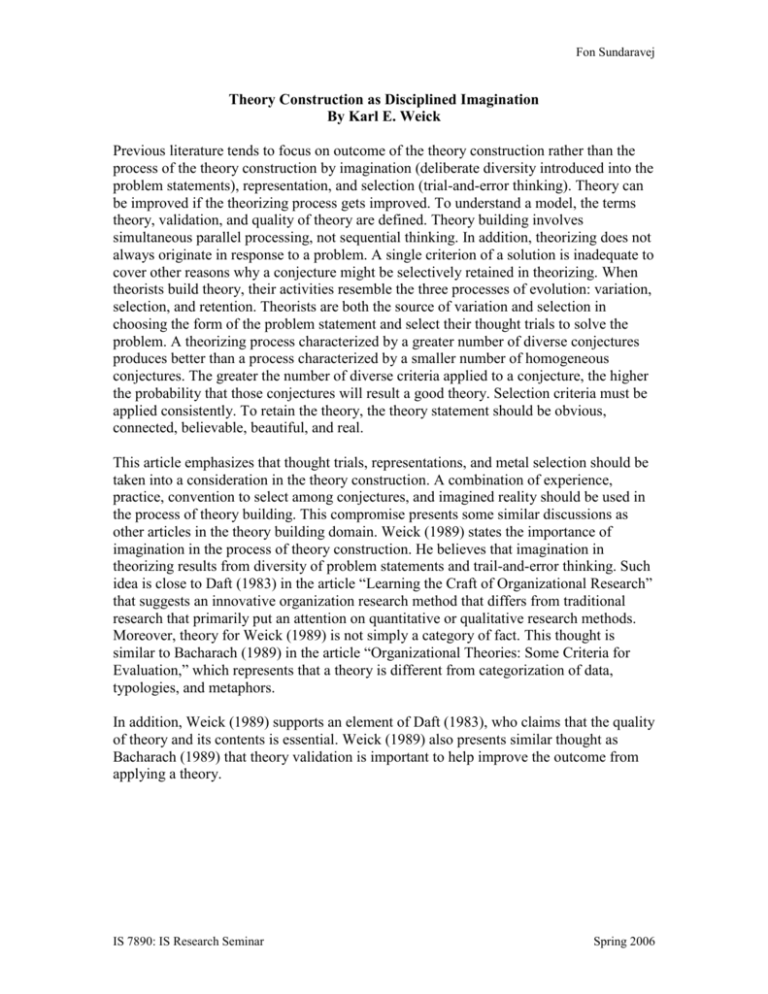
Fon Sundaravej Theory Construction as Disciplined Imagination By Karl E. Weick Previous literature tends to focus on outcome of the theory construction rather than the process of the theory construction by imagination (deliberate diversity introduced into the problem statements), representation, and selection (trial-and-error thinking). Theory can be improved if the theorizing process gets improved. To understand a model, the terms theory, validation, and quality of theory are defined. Theory building involves simultaneous parallel processing, not sequential thinking. In addition, theorizing does not always originate in response to a problem. A single criterion of a solution is inadequate to cover other reasons why a conjecture might be selectively retained in theorizing. When theorists build theory, their activities resemble the three processes of evolution: variation, selection, and retention. Theorists are both the source of variation and selection in choosing the form of the problem statement and select their thought trials to solve the problem. A theorizing process characterized by a greater number of diverse conjectures produces better than a process characterized by a smaller number of homogeneous conjectures. The greater the number of diverse criteria applied to a conjecture, the higher the probability that those conjectures will result a good theory. Selection criteria must be applied consistently. To retain the theory, the theory statement should be obvious, connected, believable, beautiful, and real. This article emphasizes that thought trials, representations, and metal selection should be taken into a consideration in the theory construction. A combination of experience, practice, convention to select among conjectures, and imagined reality should be used in the process of theory building. This compromise presents some similar discussions as other articles in the theory building domain. Weick (1989) states the importance of imagination in the process of theory construction. He believes that imagination in theorizing results from diversity of problem statements and trail-and-error thinking. Such idea is close to Daft (1983) in the article “Learning the Craft of Organizational Research” that suggests an innovative organization research method that differs from traditional research that primarily put an attention on quantitative or qualitative research methods. Moreover, theory for Weick (1989) is not simply a category of fact. This thought is similar to Bacharach (1989) in the article “Organizational Theories: Some Criteria for Evaluation,” which represents that a theory is different from categorization of data, typologies, and metaphors. In addition, Weick (1989) supports an element of Daft (1983), who claims that the quality of theory and its contents is essential. Weick (1989) also presents similar thought as Bacharach (1989) that theory validation is important to help improve the outcome from applying a theory. IS 7890: IS Research Seminar Spring 2006
